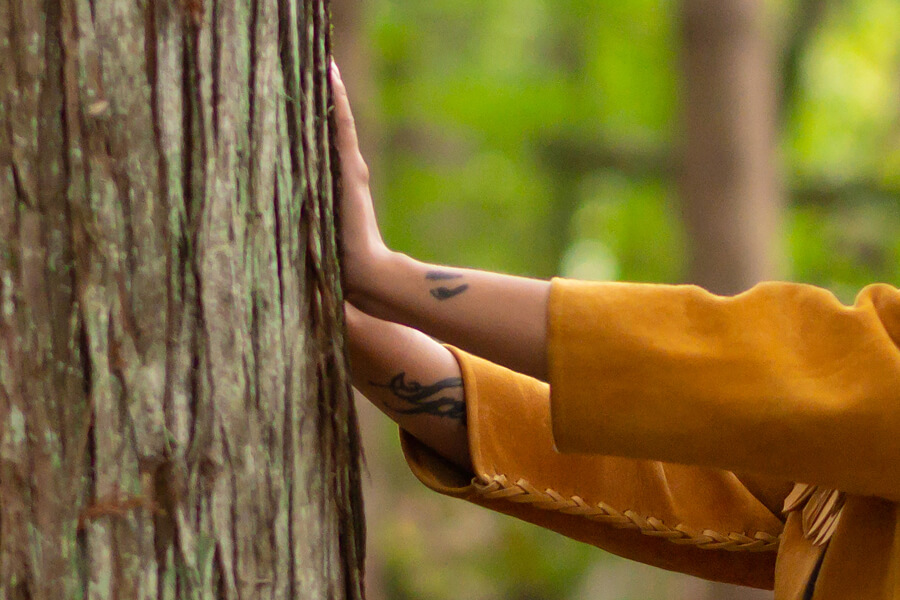
Writers Series: What is native to us
Writers Series: Imagining Life After COVID-19—This series sits outside of our evidence-based research. It complements The Conference Board of Canada’s work by exploring potential post-COVID-19 outcomes through a speculative lens. In partnership with the Ottawa’s International Writer’s Festival and our own Skills & Education and Inclusion teams, these writers imagine what the near future might look like from their own unique perspectives.
In my childhood neighbourhood, there was an old woman and her husband who watched over us every day. They were the grandparents of a friend, but we all called them Koko and Ntate Mogolo—Ntate Mogolo being a Setswana term meaning grandfather but that literally translates into Older Father. Every morning, they’d come out after their cleaning was done and sit under the tree in front of their house in quiet contemplation, occasionally engaging in conversation with one another or neighbours. All day they would sit there, moving only with the sun to stay in the shaded spot.
In what was otherwise a violent and chaotic time in South Africa, their quiet, loving tenderness made me feel safe in ways I have rarely felt since. I know they must have occasionally moved from under that tree, but I can’t ever remember them not being there. Sometimes we would go and sit at their feet, listening to stories and lessons on tradition, walking away with one or two proverbs or idioms. They asked questions, they were curious about us, and they asked us to be curious about the future.
In a world defined by words like productivity and grinding, tenderness and allowing ourselves to be unsure of what’s next are things that have come to feel foreign to us.
I think of them a lot lately as I struggle to feel like I’m accomplishing anything. My approach to this time was, at first, anything but gentle. I was determined to come out of lockdown having done something extraordinary: maybe I would not only start a novel, I’d actually finish one and then start writing another. I’d take my morning run routine up a notch, maybe run twice a day. Why not? This was a time to take control and strive toward an unprecedented level of excellence.
I haven’t done any of these things. I’m about eighty pages into a new novel, and about fifty of those were written well before quarantine. I run but definitely nothing close to twice a day. I’ve had many days of feeling discouraged and no aggressive way of going into my days seems to work. I know that at some point I was taught that going hard and overextending myself was the only way to get anything done, the only way to be successful.
I wonder more and more about my community’s grandparents, the elders who surrendered themselves into the day’s unpredictable unfolding. Tenderness seemed to be at the heart of everything they did. They protected their own sense of wonder. They were both teachers and learners.
This is of course not the way we’ve become used to living. In a world defined by words like productivity and grinding, tenderness and allowing ourselves to be unsure of what’s next are things that have come to feel foreign to us. We are held when we first enter the world, and that is an act of tenderness. We are allowed to be continuously curious. We are allowed to be uncertain of anything. Yet at some point we lose touch with our most natural ways of being, and then we have to train ourselves to remember.
Now may be time for us to remember, to return to what is native to us. It may be where our knowledge keepers become most important. I remember now that the word for tradition in Setswana is setso, meaning “the place we come from.” I wonder if returning to the beginning is what we might do more of in a future post-COVID-19. Could we become more familiar with Indigenous ways of knowing—a science born of patience, quiet observation, tenderness with ourselves and the natural world, endless curiosity, and surrendering to the unknown?
Perhaps what is native to us, what we’ve had to unlearn, may be all we have to hold on to.


Comments